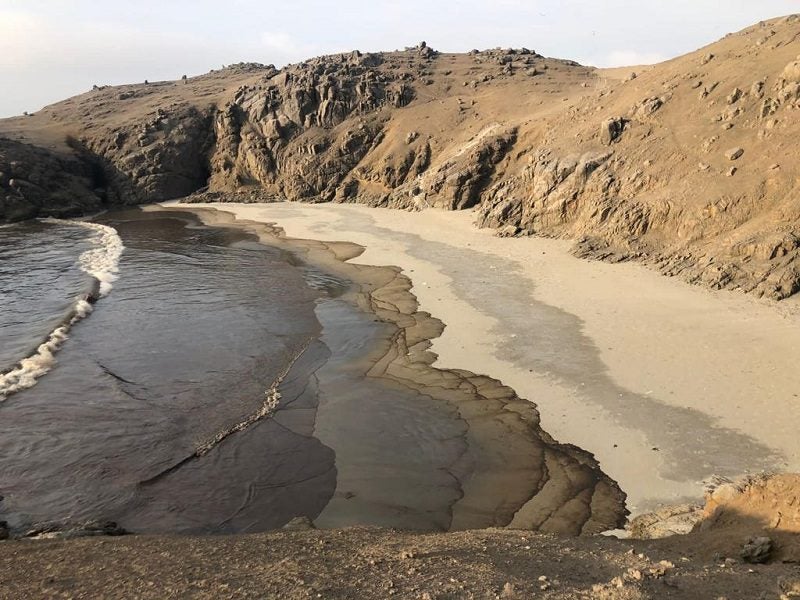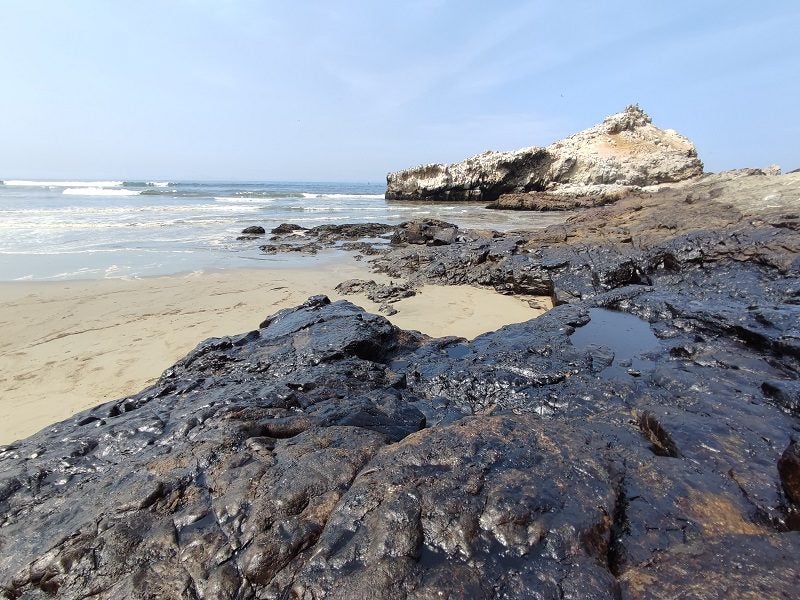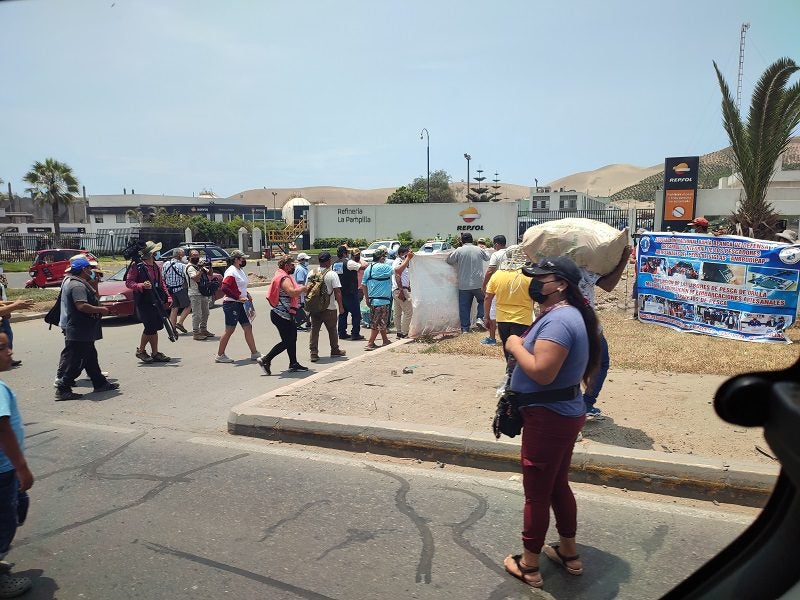Oceana: Repsol must be held accountable for oil spill wreaking havoc on Peruvian oceans and coastal economy
Conservation group says spill, which is damaging Peru’s seas and marine life, protected areas, and endangered species, could have been prevented. Calls for review of offshore oil practices in Peru.
enero 20, 2022
Ubicación: Peru
Contacto:

Lima, January 20, 2022 – On January 15, an estimated 6,000 barrels of oil polluted Peru’s ocean from a processing ship on its way to a Repsol oil refinery. Oceana says the disaster could have been prevented if the ship would not have ignored tsunami warnings along the entire Pacific coast following the underwater volcano eruption near Tonga.

Since Saturday, the spill has contaminated an estimated 26 miles (~42 kilometers) of coastline and two protected areas: the Ancón Reserved Zone and the Pescadores Islets, which belong to the National Reserve System of Guaneras Islands, Islets, and Points. These areas are home to iconic and legally protected species such as the Humboldt penguin and sea otter. The spill has also compromised fishing in the area, threatening the livelihoods of local fishermen.
“The oil spill is wreaking havoc on marine life in an important and biodiverse area of Peru, all while devastating local fishermen and their families,” said Daniel Olivares, vice president of Oceana in Peru, after visiting the affected sites. So far, Oceana says that necessary measures have not been taken to contain the environmental disaster. According to reports from the area, the oil is being cleaned up with dustpans, shovels, wheelbarrows, and buckets.

The Agency for Environmental Assessment and Control (OEFA), as part of the Ministry of the Environment, has ordered Repsol to comply with a series of administrative measures, including identifying the affected areas; containing and recovering the oil; and properly storing, transporting, and disposing of the waste. Unfortunately, Repsol has not taken these actions and it does not seem like the company has an adequate contingency plan for a spill of this magnitude.
“Repsol must be held accountable for the devastating effects of this oil spill. They continued to process oil despite dangerous conditions at sea and have since failed to take appropriate actions to address the aftermath,” Olivares added. “Peru needs to reassess its reliance on offshore oil drilling, which is a dirty and dangerous practice that is hurting our oceans and greatly contributing to climate change.”

Oceana is the largest international advocacy organization dedicated solely to ocean conservation. Oceana is rebuilding abundant and biodiverse oceans by winning science-based policies in countries that control one-third of the world’s wild fish catch. With more than 225 victories that stop overfishing, habitat destruction, pollution, and the killing of threatened species like turtles and sharks, Oceana’s campaigns are delivering results. A restored ocean means that 1 billion people can enjoy a healthy seafood meal, every day, forever. Together, we can save the oceans and help feed the world. Visit www.oceana.org to learn more.
Follow us on:
